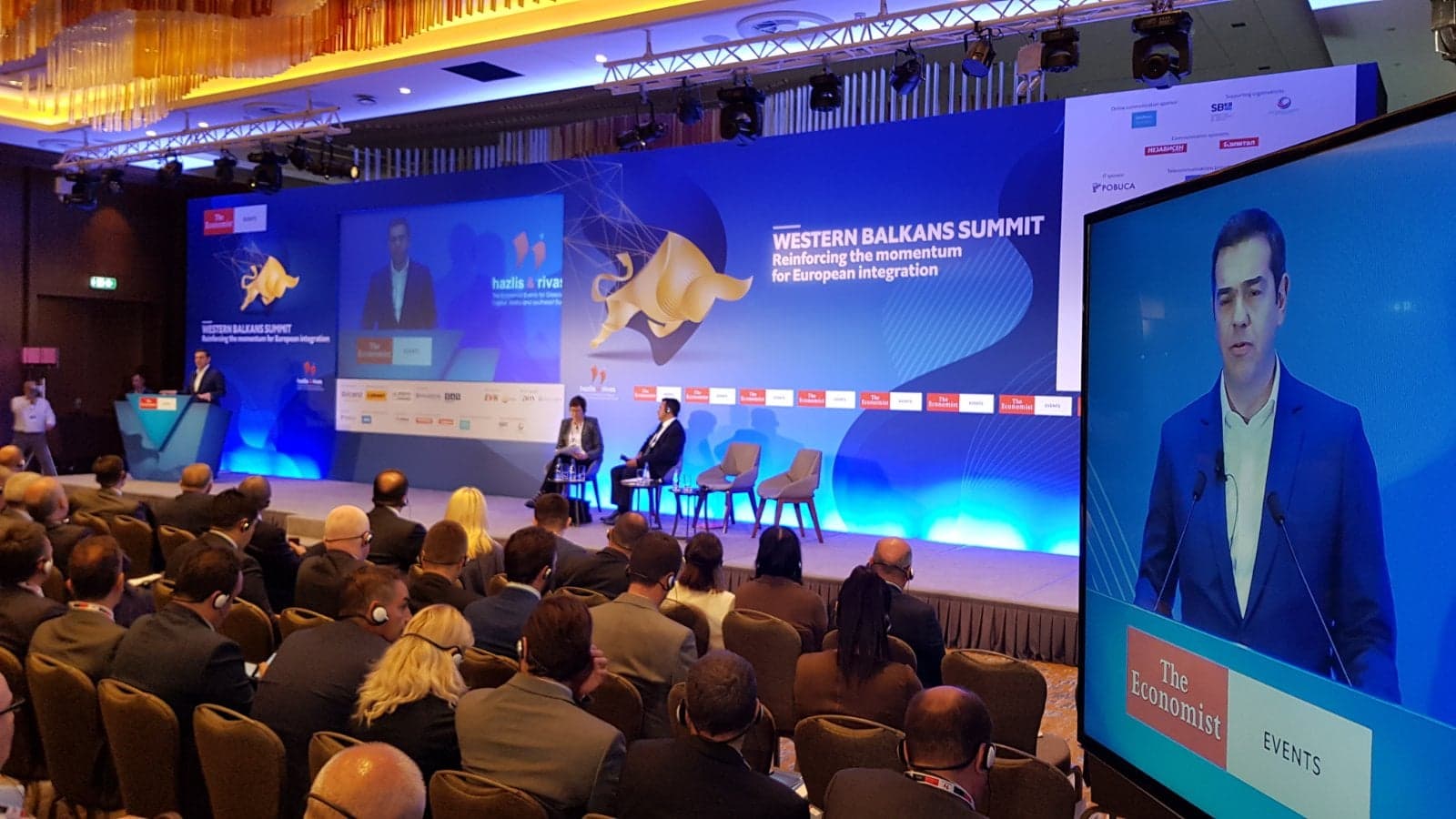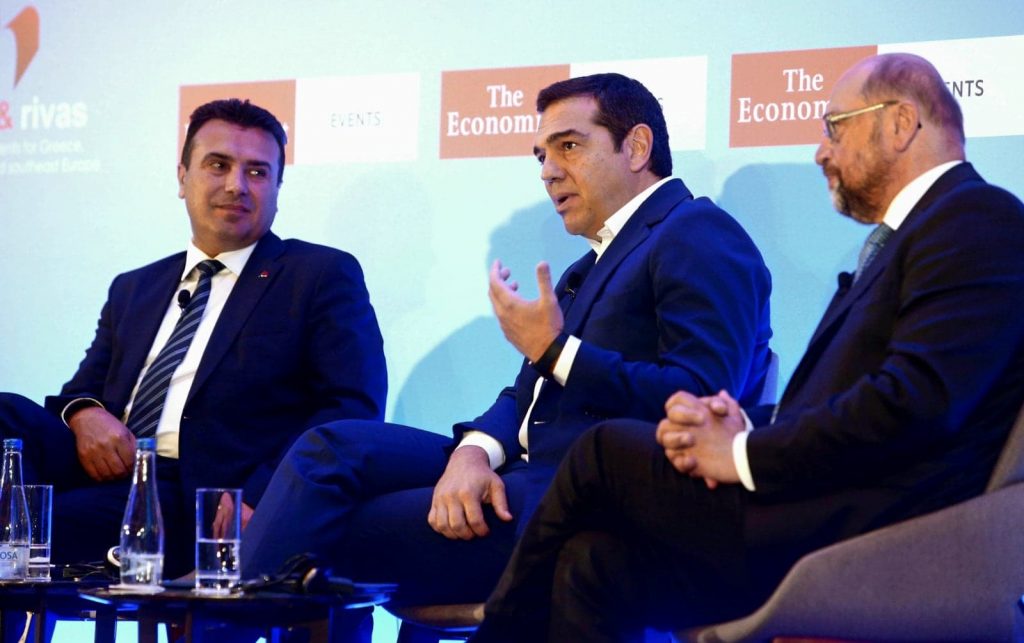Tsipras: The Prespa Agreement is a win of diplomacy over nationalism

“This agreement demonstrates the values that the EU is fighting for. Membership to the EU is also a part of it. The agreement reaffirms EU’s ambition to establish peace and stability in the region,” said Tsipras.

“North Macedonia is a country that promotes the enlargement process within the frames of the European legislation,” he continued. “It demonstrates that the country is a credible partner to the EU and the EU should approve a date for start of accession talks at the upcoming meeting of the EU Council”.
According to Tsipras, when Foreign Ministers of the two countries at the time, Nikola Dimitrov and Nikos Kotzias, had signed the agreement, there’d been a hands-on feeling of building history.
This complex agreement, he added, with all its terms, articles, provisions, enables us to move bilateral ties forward and take concrete steps for cooperation.
“We all know that the most important step is already taken, as our countries are no longer opponents. Our people will very soon start to see the whole benefit of this agreement. I believe that from now on, our goal will be building mutual trust,” noted Tsipras.
Former PM Tsipras added that the agreement enabled cooperation in many spheres including economy, tourism, and even defense, which according to him showed there was trust between the two countries and their people.
“This agreement is a positive signal and it brings positive change both for the region and for Europe,” Tsipras pointed out. “It symbolizes the win of democracy and cooperation over nationalism and introversion. It is the spirit of common cooperation in the Balkans, which will not be built upon the power of one or the defeat of another country.”